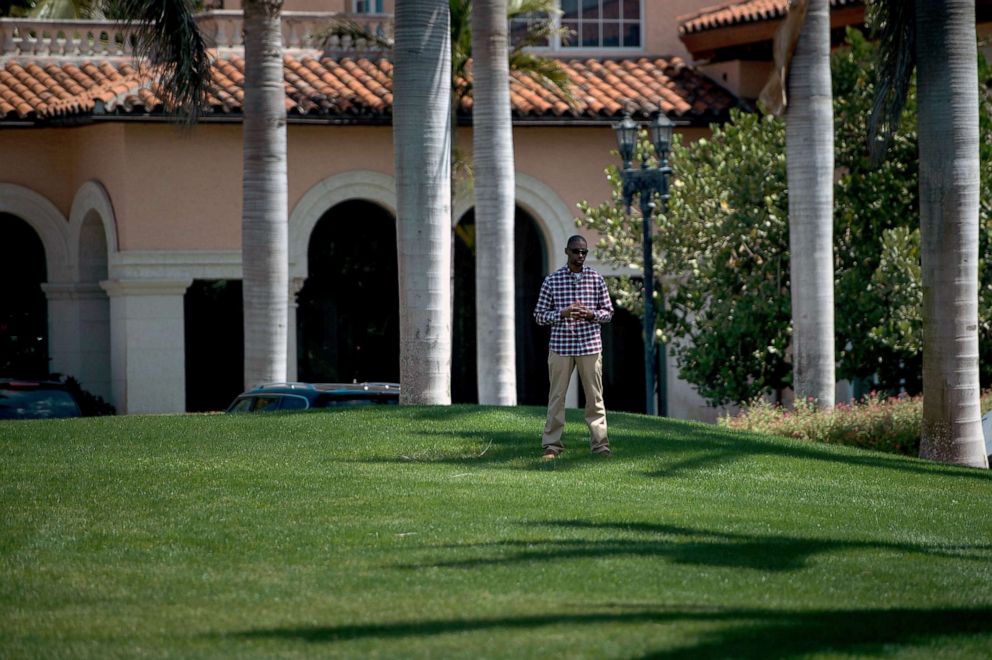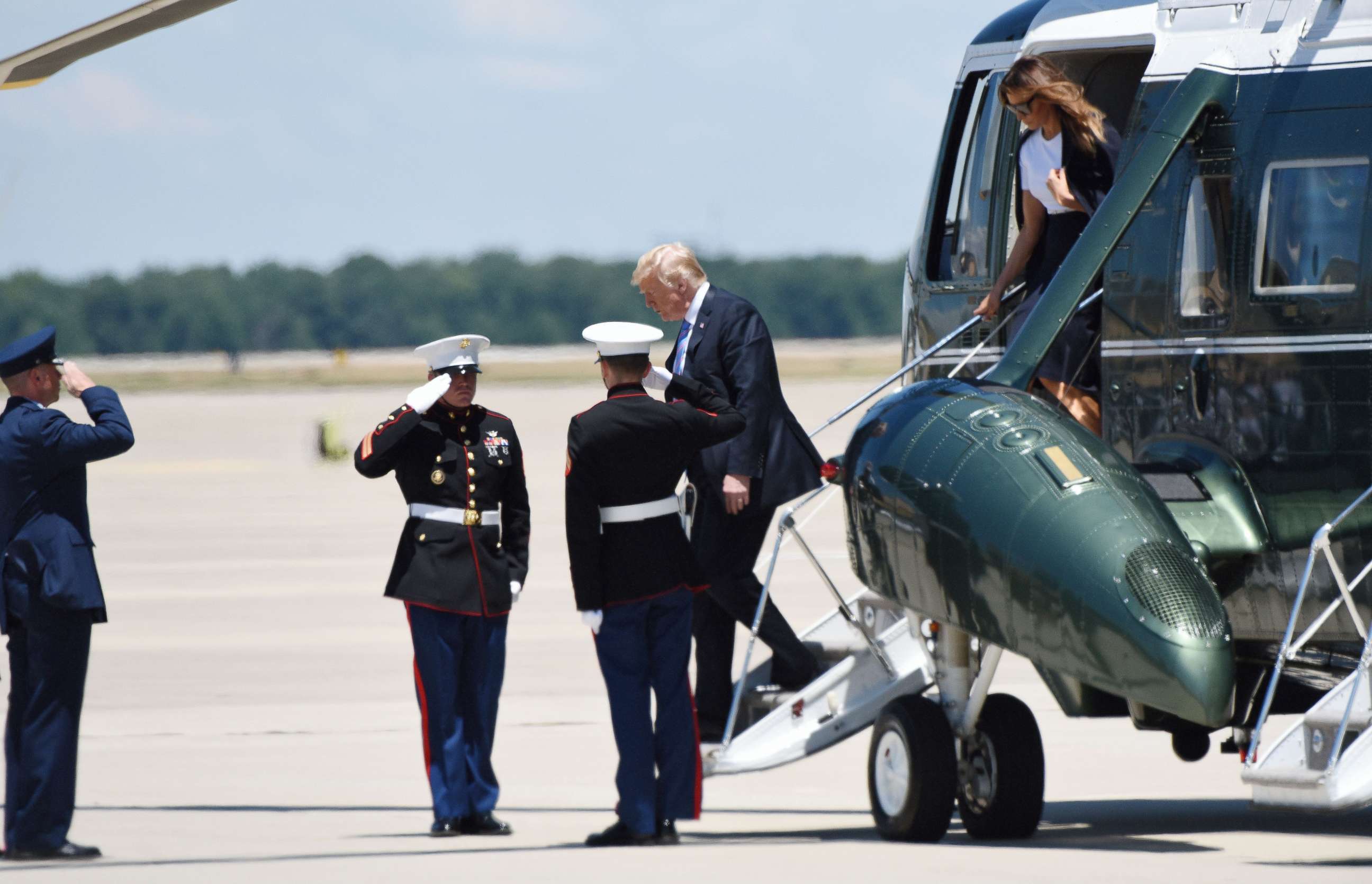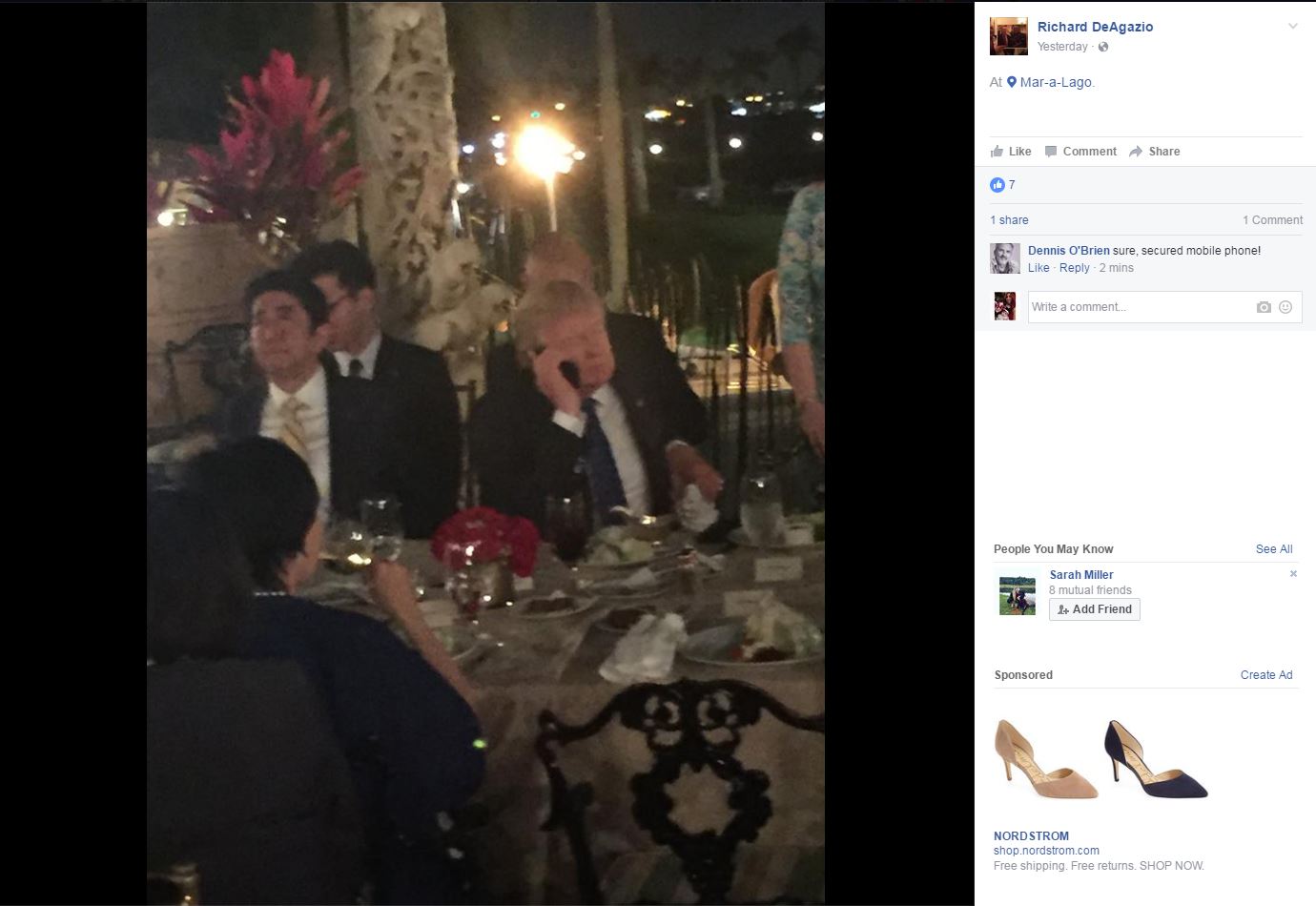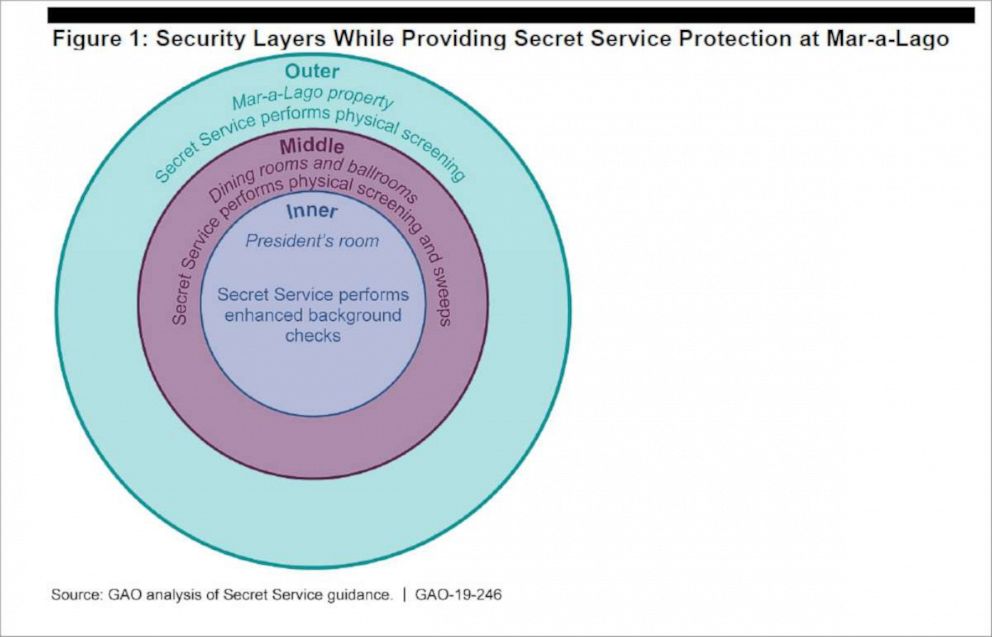Breach shines renewed light on Mar-a-Lago security
Democrats have asked the FBI to assess protocols at the president's resort.
The recent breach of security at Mar-a-Lago allegedly perpetrated by a 32-year-old Chinese woman bearing an assortment of electronics prompted congressional Democrats on Wednesday to call for a reexamination of protocols meant to protect President Donald Trump during his frequent stays at his “Winter White House,” as he calls it.
The president was off-site at the time of this weekend’s incident, visiting his nearby golf course for the day. A nonpartisan government report from February found that the Secret Service had put adequate security measures in place, but Yujing Zhang’s ability to gain access to the president’s resort spotlights once again the broader issue of access and security at the president’s resort, where he revels in freely mingling with high-paying members and guests.
“In the case of Mar-a-Lago, you have the logistics of an active club with high-paying members who are permitted to access the club – even when the president is there – screening multiple comings and goings of individuals and potential deliveries in and out of the club,” Don Mihalek, an ABC News contributor and former senior U.S. Secret Service special agent, said Wednesday.

At around noon on Saturday, Zhang was allowed through two Secret Service and Mar-a-Lago staff security checkpoints before a receptionist discovered she was not a relative of a club member – as staff originally seemed to believe – and was not on the club’s access list, according to a criminal complaint.
When questioned by the Secret Service, Zhang said she had been told to attend an event that night at Mar-a-Lago by a Chinese friend named “Charles,” and one Secret Service agent reported one of the electronic devices she carried, a thumb drive, contained some kind of malware, according to a preliminary analysis.
A former U.S. official familiar with White House cybersecurity concerns told ABC News it’s difficult to tell what sort of a threat the malware posed without knowing exactly what it was – whether it was run-of-the-mill malicious code that is not uncommonly found on thumb drives, or something more sophisticated meant to eventually make its way to sensitive official networks.
James Mulvenon, a Chinese espionage expert, called the incident “troubling,” but said he was doubtful it was part of a greater plot, citing what would have been “terrible tradecraft” for an actual intelligence operation.

Still, congressional Democrats have repeatedly raised red flags about security protocols at Mar-a-Lago. On Wednesday, three top Senate Democrats asked the FBI to assess “vulnerabilities” in protocol at the president’s Palm Beach resort.
“This latest incident raises very serious questions regarding security vulnerabilities at Mar-a-Lago, which foreign intelligence services have reportedly targeted,” Sens. Chuck Schumer, D-N.Y., Dianne Feinstein, D-Calif., and Mark Warner, D-Va., wrote in a letter addressed to FBI Director Chris Wray, adding, “As the White House Communications Agency and Secret Service coordinate to establish several secure areas at Mar-a-Lago for handling classified information when the President travels there, these potential vulnerabilities have serious national security implications.”
The Secret Service has agreed to brief senior members of the House Oversight Committee about the breach on Thursday morning, a committee aide confirmed to ABC News. The chairman of the House Intelligence Committee, Rep. Adam Schiff, D-Calif., has also requested a briefing on the matter from Director Wray.
On Wednesday President Trump told reporters he was “not concerned at all” about the security breach, calling it a “fluke situation” and praising the alertness of the receptionist.
“The person at the front desk did a very good job, to be honest with you, that particular woman did a very good job,” Trump said.
The U.S. Secret Service, tasked with protecting the president, clarified Tuesday that it “does not determine who is invited or welcome at Mar-a-Lago; this is the responsibility of the host entity,” adding that security measures “at Mar-a-Lago [are] no different than [those] long-used at any other site temporarily visited by the President or other Secret Service protectees.”
But the unique nature of protecting the president at a club where he is surrounded by hundreds of high-paying members poses its own challenges. As Mulvenon pointed out, it’s a site that is owned by the president but not fully under control of the Secret Service. “They can’t be comfortable with that arrangement,” he said of the Secret Service.
The security circumstances at Mar-a-Lago, where the club’s staff controls who can enter the premises, differs from those at locations where previous presidents vacationed, such as George H.W. Bush’s property in Kennebunkport, Maine, or his son’s ranch in Crawford, Texas.
“Mar-a-Lago presents a different protective environment because it’s almost like you have a private residence with a public space,” Mihalek, the former senior U.S. Secret Service special agent, said, adding, “Other presidential residences, they’re pure residences… Mar-a-Lago is both a private residence and a private club that allows members in.”
Another hurdle for the security apparatus comes when the president invites foreign leaders to visit him at the resort, which he has done several times. One such notable incident occurred early in the president’s term, when North Korea tested a ballistic missile while President Trump was hosting the Japanese prime minister at Mar-a-Lago.

Images posted to social media raised questions about whether the president was discussing national security matters in front of dinner guests – and the Japanese delegation. The White House later said they were only "reviewing the logistics for the press conference,” but the incident prompted congressional Democrats to refer the matter to the Government Accountability Office (GAO), which conducted a review of security protocols at the resort.
In February of 2019, the GAO determined that Secret Service had put in place sufficient security measures to adequately protect the president, but described a burdensome and expensive process for securing the premises.
The GAO found that Trump’s frequent visits require multiple federal and local law enforcement agencies to patrol nearby waterways, escort guests through physical checkpoints, secure rooms the president is known to frequent, perform perpetual sweeps in various spaces, and conduct routine background checks on Mar-a-Lago staff.

The report also described how security form layers of checkpoints depending on a guest’s potential access to the president. “The Secret Service develops and executes a security plan to ensure that the outer, middle, and inner layers at the travel location are secure,” the report reads.
The Trump Organization has not responded to a request for comment.
Zhang, who remains in federal custody, is back in court next week for a detention hearing.
ABC News' Benjamin Siegel contributed reporting.




